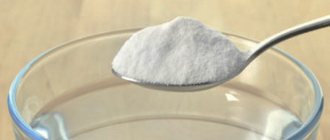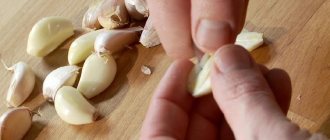How long, until what age does your tummy hurt? How does this manifest itself and what to do?
Colic and gas in infants are a temporary phenomenon, but cause a lot of trouble and anxiety. Typically, a child experiences colic from the second half of the first month of a baby’s life until 2-3 months, sometimes longer or later. During the day - rarely or weakly, in the morning and at night - stronger, and in the evening - most often and painfully. Whether it’s daily or not depends on each other.
When there is pain in the abdomen, the baby behaves restlessly: he tightens his legs, straightens them tensely; may squeak, scream, refuse to eat.
If the tummy is hard and hurts, then young parents cannot always cope with it easily. But after giving birth, it is important for a mother to get a good night’s sleep, rest, and feel calm and confident.
Once upon a time, my husband and I didn’t know how to help our baby - we chronically didn’t get enough sleep, didn’t have time to do anything! The visiting nurse advised giving the child dill water , which had to be first ordered from the pharmacy. It often helps - you can use it with confidence!
They also applied a warm diaper, warm cottage cheese or grated beets . It helped well. By the way, some people still prefer such a folk remedy as a warm compress of grated beet. Give it a try.
Wash the beets, pour boiling water over them, and grate them on a coarse grater. Squeeze lightly and wrap in gauze or diaper. Apply it warm to your tummy, cover it with parchment or something waterproof, and secure it on top with a vest, blouse, bodysuit, diaper - whatever is comfortable for you. Just be careful - things don't wash out. You can keep the compress for a long time until it dries.
Cottage cheese is even easier to use. It is very easy to apply a diaper heated with an iron or on a radiator.
Be sure to check that it is warm and not hot.
We put the bundle on the lid of a warm dish in the kitchen, heated it and wrapped it again.
It was easier with my second daughter - we learned to use a “gas tube.” Buying it was problematic, so purchasing a pipette with a smooth tip . The rubber band was thrown away, and the glass part was carefully used. Sometimes she helped out well, helping the baby pass gas and fart, and sometimes not so much.
How to use? — Place the child on his left side or on his back, tuck his legs. Insert the smooth tip of the pipette, lightly lubricated with Vaseline oil, into the anus. Sometimes a lot of gas passes at once, sometimes the child starts pooping mixed with gases. Fix the pipette firmly with dry fingers. You can move it a little, irritating the anus.
In my opinion, this is a very gentle method. You can simply massage the anus with a clean finger lubricated with baby butt cream . For some, this is enough.
With the next ones, twins, there were no problems at all. We were already very good at doing tummy massages. In especially difficult cases, they could give an enema. All comes with experience.
However, even what we learned then, about thirty years ago, I would now reject, having adopted new knowledge.
Currently, despite the fact that there are a lot of materials available, not everyone can successfully cope with the problems of regurgitation and colic. Perhaps the strangest thing for me in this matter is that today, as in Soviet times, some of the medical staff advise using far from the best methods.
I mean gas tubes, yes, especially enemas, which cause great harm to the intestinal microflora of a little person.
How to recognize colic
If your baby farts and cries, this may be a sign that your baby has colic. They manifest themselves in the form of spasms of the baby’s intestines.
As already mentioned, the digestive system of infants is still imperfect and “ripens” in the process of growing up. Until the digestion process is completely normalized, the baby may experience colic for some time.
How to understand that a child has colic is very important for all parents to know. And initially you need to exclude any possible diseases, making sure there is no infection. If, according to the results of the examination, it turns out that the baby is healthy, then it is colic that is bothering him.
To understand that a child has colic, there are quite characteristic signs. And the main one is constant crying. It begins immediately after feeding or while eating. Some children refuse food.
It is very difficult to calm the baby down; he arches and strains. His face turns red from tension. The child's tummy becomes slightly swollen, dense, and a characteristic rumbling sound is heard. Often the attacks begin at the same time and last for about 3 hours, after which they pass without a trace. After the gases pass, improvement is observed.
My advice to those who cannot cope with problems
A nursing mother should adjust her diet. You should not eat multi-ingredient foods (for example, cake), hot, smoked, spicy, fried foods, as well as those that cause flatulence. Milk and sweets should be limited, and the amount of liquid should be increased. It is better to eat everything homemade and not buy semi-finished products.
There is no need to get too hung up on various kinds of restrictions; fanaticism is inappropriate here. Nutrition should be as simple as possible, but varied, without excesses in favor of any one or two products. If you occasionally want something you can’t do, then it’s better to eat a little, I think, than to drool.
Video: Diet of a nursing mother. Lactation diet.
There is no point in observing restrictions throughout the entire feeding period; it is better to loosen them little by little.
Mom should get enough sleep and walk in the fresh air. It is advisable to accept any help from loved ones in order to be calm and well rested.
Before each feeding, try to place the newborn on his tummy on a hard surface or on your lap, stroking his back and talking to him tenderly. While he is small, he can lie like this for a little while, help him.
Please note that a very tiny baby often reflexively scatters his hands. Frightened, he begins to cry. Immediately take his hands in yours, limiting his freedom, as in the womb. He calms down quickly! At such moments, you can give him a fetal position by pulling his legs towards his tummy.
You should regularly perform tummy massages between feedings, or 15-20 minutes before feeding, which are shown to every young mother by a visiting nurse. This is very important for relaxing the abdominal muscles, reducing intra-abdominal pressure, and eliminating gases naturally. If you learn how to perform them, you will not have to resort to extreme measures - gas tubes and, especially, enemas. Unpleasant phenomena will decrease and soon disappear altogether.
Most often, babies' tummies hurt in the afternoon, evening, or closer to night. You need to help the baby relax his abdominal muscles so that he can fart safely. To do this, lay him on his back and, talking tenderly, place a warm diaper folded in several layers on his tummy, which you can then lightly squeeze with your palms or massage in a clockwise direction. In the first month of a baby’s life, it’s not so much a massage as light stroking.
After working with your tummy, press your legs with your knees towards your stomach several times - together or alternately. Nothing should be done through force, but only after achieving relaxation. How? - Affection, tenderness, confidence in the voice.
You can teach your baby to a very useful position. To do this, we connect the baby’s soles (as if making “hands-on-hands” with his feet), simultaneously lifting them to the navel. The shins lie parallel to the small of the back, and the butt sticks out like a diving gosling. Press the soles of both legs with your palms in this way to your stomach, hold for a minute or two.
In this position, he rests, relaxes, can fart, and even sometimes poop. Therefore, lift the edge of the disposable diaper on which the baby is lying, covering your clothes so as not to stain them (why do you need extra washing?).
What are the causes of intestinal colic? How to help your baby?
Talk to your child constantly, hum - just always quietly, gently. Never try to talk over him. Children scream louder the louder the people around them talk. On the contrary, the quieter you behave, the faster, after shouting, as if complaining to you, the baby will begin to listen to you. Moreover, each time you become more attentive, and then a smile is just around the corner! And soon it will begin to gurgle, calling out to you.
Reasons for Frequent Farting
Excessive gas and farting is a short-term or long-term problem. The causes of bloating are different, most often it is caused by swallowing air or poor nutrition. Newborns most often suffer from bloating, regardless of the method of feeding - breast or artificial. Sometimes the cause may be an infection caused by a virus or bacteria (with a bacterial disease, the gases may smell unpleasant), which is accompanied by an elevated temperature.
Intestinal colic
The first cause of colic is swallowing large amounts of air along with food. A common problem is bottles for artificial feeding, which, if held at the wrong angle, encourage air to be swallowed along with the milk during feeding. Colic is expressed by increased gas formation, pain, anxiety, refusal to eat, severe belching, and vomiting. With colic, a baby farts and cries frequently, and the stomach may become hard.
Another common cause of colic in babies is poor nutritional tolerance caused by the mother eating inappropriate foods.
In the context of infant colic, an allergy to cow's milk protein (lactose intolerance) is taken into account, which is manifested by changes in stool (stool mixed with blood), a strong smell of stool (gases can also stink). In both cases, you should consult your doctor.
Longer-lasting bloating, belching, and repeated loose stools are symptoms of flatulence caused by malabsorption syndrome. Malabsorption is poor absorption of individual food components from the digestive tract into the body.
One of the diseases that causes malabsorption syndrome in infants is cow's milk intolerance.
If a woman breastfeeds little or there is no breast milk at all, cow's milk is used as an alternative to lactation. All baby food is based on it. The protein in cow's milk is different from the protein in human milk, and the child's body may react negatively to it. Low tolerance leads to flatulence, vomiting, diarrhea or constipation.
Another cause of flatulence may be malabsorption syndrome caused by poor digestion of lactose.
Lactose is milk sugar that breaks down enzymes in the intestinal mucosa into 2 simple sugars. Following an intestinal infection or congenital disorder, there may be a short-term or permanent absence of the enzyme lactase (which breaks down lactose). One of the symptoms of lactase enzyme deficiency is recurrent bloating after drinking milk or dairy products. When a baby wants to fart, he starts crying because it hurts. Both gas and stool are characterized by a strong odor.
Attention! If the baby is not breastfed, it is recommended to switch to special baby milk. Your pediatrician or pharmacist will recommend it.
How to relieve colic and relieve gas in a newborn baby?
The baby begins to writhe, tuck his legs, - don’t wait for a cry, but quickly, but carefully, put him on his back. Start with the feet, with the legs - perhaps your baby will allow your palms to his painful tummy faster. There is no need to delay the process. Your goal is the tummy. They stroked, massaged, turned the baby onto his stomach, and stroked his back affectionately.
Twist and twirl it more often, but carefully, gently, so that he likes it. If he doesn’t perceive songs and speech well, distract the baby with different sounds that are interesting to him: coo, babble, hum, come up with anything. Don't be silent, otherwise he will scream.
Work out with him on the fitball. You can immediately use a fitball instead of a massage. Don't be afraid to experiment. The child is yours and only you can choose the method that suits your baby. Perhaps he will enjoy swinging on the ball for a couple of days, and then he won’t let him do it for a week. Well, adapt to him, “agree.” He studies the world around him, you, himself, his sensations, which change from day to day, as his internal organs and systems grow, changing their ratio, location and functions, taking on an increasing load.
If the baby is calm, you can walk around the apartment with him, placing his stomach on your hand, back up, holding him with your other hand. This is what dads often wear - they are strong, their palms are wide. You can carry the baby on his tummy in both palms, holding him close to you and turning his head so that he “looks around” and let his legs hang down.
Press both legs, foot to foot, and lift to the navel, to the tummy. In this position, pressing the baby with his back to you, you can carry the baby for a long time, performing the necessary household chores, moving him first to the left, then to the right. It is very comfortable. It is advisable to involve dad in this so that mom doesn’t overstrain her spine from constant stress.
When dad is resting, let him press the baby’s bare belly to his bare chest or stomach - the warmth causes the muscles to relax and the pain to subside. Post it to yourself more often. Such contact is very useful. Sometimes just one is enough to relieve colic.
Don't be afraid to mess around with your little one. Be bolder, look for your own ways.
Do not overheat your baby , expose him often, especially the lower part of the body. Give him freedom of movement more often. If you swaddle his arms for sleep so that he doesn’t wake himself up, then leave his legs free.
There are different opinions about overfeeding. Some experts say that it is simply unrealistic to overfeed a baby. Even if he gains up to 2 kg per month, he will still lose it when he begins to actively develop. And others do not advise overfeeding.
Causes of increased gas formation in an infant. Dr. E. O. Komarovsky.
Bathing and swimming in a large bathtub help very well.
If your baby is bottle-fed, try using Dr.Brown's anti-colic bottles.
It is important to constantly talk and hum. The baby will remain calm longer, hearing his native voice, even if you are vacuuming in another room. And you, in turn, will be more free. Independence or helplessness of a person is laid down from birth, according to my observations.
You can play calm music for your baby, but you should carefully select the repertoire. Over time, you may notice which melody or tune he prefers, falls asleep better, lies calmly in the crib, even if he is not sleeping.
This is such a vicious circle. The closer and closer you are to your child, the faster he becomes self-confident. The main thing is trust. If he believes in you, he will believe in himself. She will develop better and more correctly, learn to be independent earlier, and give you a chance to become a happy mother. If there is peace and grace in the family from the very beginning, then the baby’s nervous system will not be harmed and you will approach the preparation of the next test - teething smoothly, meeting the teeth much easier, calmer.
Especially for the article, I watched a lot of videos with massages for babies in the first three months of life and gave preference to this one. I suggest you watch it and learn completely simple, but very useful techniques.
How to give a massage for intestinal colic in children in the first months of life?
Symptoms of increased gas formation
With increased gas formation, in addition to the fact that the child farts often, other symptoms appear, in particular, the following:
- unpleasant smell of gases;
- yellowish-green stool mixed with mucus and lumps;
- vomiting and regurgitation;
- temperature increase;
- slight weight loss;
- white coating on the tongue;
- stomach ache.
Simple bloating lasts no more than a week. With proper treatment, health quickly returns to normal, and symptoms disappear without complications.
Simple bloating lasts no more than a week. With proper treatment, health quickly returns to normal, and symptoms disappear without complications.
Why does my tummy hurt? How to help your baby fart?
- Proper nutrition for mothers if the baby is breastfed.
- Even breaks between feedings.
- Proper feeding to avoid swallowing air.
- Using Dr.Brown's bottles.
- Placing the baby on his tummy before feedings.
- Abdominal massages clockwise.
- Pulling your legs towards your tummy.
- Charging with a fitball.
- Applying a warm diaper, heating pad; warm compresses.
- Warm dill water, tea with fennel, chamomile.
- Mother and baby belly to belly contact.
- Swimming.
- Regular walks in the fresh air.
Only in the very last place, in my opinion, are gas tubes, enemas and medications, be sure to consult with your pediatrician. At the same time, remember that any medicines are chemicals, even those based on herbs. In addition, according to various sources, fakes now range from 50 to 80%. Do you need it?
For bottle-fed babies, the doctor will likely choose the most appropriate nutrition. They are more likely to experience constipation and the troubles described above than those who grow up on mother's milk.
Here you will read about how to properly feed a baby so that he does not take in a lot of air, and how to remove this air from the stomach so that his tummy does not hurt.
Why does a baby spit up after feeding? Baby is 1 month old
How to use gas outlet tubes
Causes of gas leaks
Gas formation in the intestines of a newborn causes severe pain and cramps in the tummy. The child may suddenly and loudly begin to scream and jerk his legs. Sometimes he presses them to his tummy and shows nervousness and anxiety. All this can continue periodically, at short intervals. These are the main symptoms of excessive gas accumulation in a baby. To alleviate the child’s suffering and reassure parents, it is necessary to understand the cause of gas leaks. There may be several of them:
Malnutrition of a nursing mother
A breastfeeding woman should know that there are foods that cause increased gas formation. It is passed on to the baby through mother's milk. Therefore, a nursing mother should not eat certain foods:
- Yeast-based baked goods and homemade baked goods
- Peas, beans
- Cabbage
- Various carbonated drinks
- Large amounts of sugar
- Condensed milk and fermented milk products
From the first days of the baby's life, the mother should be on a strict diet for at least the first few weeks. You can eat various soups, cereals, stewed vegetables, boiled meat and fish, and various teas. From the second month, you can gradually introduce new foods for the baby and monitor the baby’s body’s reaction.
Incorrect attachment to the breast
When putting your baby to the breast, you need to make sure that he immediately clasps the nipple and does not swallow a lot of air. The baby's head should be slightly higher than the body during this procedure.
Bottle feeding
When feeding a baby formula from a bottle, you must ensure that the nipple is completely filled with milk, otherwise the baby will swallow air instead of formula.
Other reasons
Gas formation can occur due to prolonged crying and screaming of the baby, due to the wrong size of the diaper, which will squeeze the tummy with a tight elastic band. Also, swaddling that is too tight will cause dissatisfaction in the baby.
Baby crying with increased gas production
Many parents have to deal with a situation where a newborn farts and cries. This manifestation of childhood intestinal colic is common and causes quite severe pain to the little toddler.
This is due to the fact that over a long period of time the baby has been in the mother’s tummy, it has become accustomed to functioning according to one method, and after birth it is immediately attacked by many real life factors. A newborn's constant desire to be held in his mother's arms in the usual embrace alternates with incomprehensible pain in the tummy. This is where the constant crying and whims come from.
It takes a baby several months for its digestive system to begin to cope with the load. And all this time the baby’s gastrointestinal tract is growing up, parents will have to gain strength and wait. Only your patience, love and care will help the baby during this difficult period.
The most important thing in this situation is not to panic, because colic is a very common phenomenon in infants. And from panic and constant anxiety, a nursing mother may lose milk.
The transition from breastfeeding to artificial feeding will cause an even greater attack of colic in the baby!
Let's calmly understand all the intricacies of this matter, find out the causes of its occurrence, methods of control and prevention.
The main reason for this problem is the immaturity of the digestive system. Before birth, the child did not have to deal with digesting food; his mother did it for him.
Now, when maternal or artificial milk enters his tummy, active foaming occurs and gases are released.
The less air the baby swallows, the less gases will accumulate in his intestines!
Also, children of this age often experience difficulty passing stool. The baby's fermentation does not have time to cope with the incoming milk.
It is difficult for a baby to cope with a completely new task of removing feces and gases from his tummy. It takes time to learn all this, but in the meantime, the child farts and cries.
Also, colic and the active secretion of gas are often influenced by the incorrect diet of a nursing mother. You should be careful about what she eats and record your baby's reaction to these foods. Keep a special food diary for your baby and clearly record your entire diet there.
Let's once again list the causes of colic in newborn babies:
- Adaptation of a child to “adult” food;
- A sharp transition from breastfeeding to artificial feeding;
- Slow process of assimilation of complementary foods;
- Incorrect selection of formula;
- Maternal malnutrition.
Naturally, it is very difficult for all parents to see their child cry. The child turns very red, tenses, then farts and screams. This makes his parents feel great concern for the health of their baby. Why does he do this? What hurts him? Or maybe it's dysbacteriosis?
If the baby is developing well, is constantly gaining weight and has an excellent appetite, then it is not he who has the problem, but his parents! These indicators indicate that the child’s body is functioning perfectly and does not suffer from any abnormalities or disorders. Farting and crying? It's OK! Wait a few months and everything will be behind you.
If a child exhibits disturbances in normal weight gain or lacks appetite, then it is imperative to show him to a pediatrician! He will conduct a series of tests, prescribe a specific diet for the nursing mother and prescribe the necessary medications for treatment.
At the age of 3-4 months, the baby’s digestive system is fully functioning and colic gradually disappears. In some cases this happens much later. Boys are especially susceptible to this due to the structural features of their nervous system.
Some simple tips for prevention:
- Often there is an active manifestation of colic when evening comes. The baby begins to moan, grunt, fart and scream. Sometimes the crying goes away after the gases are successfully removed from the intestines, and sometimes the child can cry for several hours in a row. Evening “concerts” are directly related to the fatigue of the children’s nervous system. During the day, the baby learns about the world around him, listens to unfamiliar voices and sees some faces, of which he recognizes only his mother’s own face. In the evening, after receiving a lot of impressions, an explosion occurs due to anxiety in the tummy. To avoid this, try in every possible way to avoid noisy quarrels and scandals in the room where a small child is. A favorable home environment will help both the baby and his mother cope with this little misfortune.
- Try to place your little one on his tummy more often and play with him in this position. The pediatrician may also advise you to use a special ball for baby tummy exercises. Just don’t do such exercises when the baby has just eaten. Leg exercises are also extremely useful for a little toddler. Pull his legs towards you and then press them against his tummy. This will help the easy and painless passage of gases and feces. During such exercises, the newborn farts easily and does not experience discomfort.
Often, pediatricians prescribe medications for the treatment of colic in newborns to normalize the intestinal microflora (Bifiform, Hilak Forte, etc.). They also prescribe drugs that have the ability to destroy gas bubbles inside the intestines (Espumizan, Bebinos). It is possible that your pediatrician will advise supplementing your child with decoctions of fennel, anise or chamomile.
Gas in a baby - what to do
The digestive system of a newborn baby is not yet fully formed, and its work differs from that of an adult body. Thus, the child does not yet produce in sufficient quantities many enzymes that ensure the full functioning of the digestive organs. The baby’s body is not yet able to cope with the problem of increased gas formation on its own, so parents should come to the child’s aid.
To solve this problem, there are several methods known since ancient times. One of them is to warm the baby's tummy. Under the influence of heat, the intestinal muscles relax, therefore, spasms are reduced or completely removed. The patency of the digestive tract is restored, and the infant’s gases are released naturally. In order to warm the baby's tummy, you can use a regular diaper, well heated with a hot iron. But you cannot overheat the diaper; it should not be hot, but warm. Another method of warming the tummy can be a warm bath. In this case, it is better to lower the child into it with his tummy down. In this case, the stomach will warm up better and the cramps will disappear. After feeding the baby, after a certain period of time, it is also worth putting him on his tummy, this will help remove accumulated gases.
Another equally effective way to treat gas in a baby is to massage the tummy. This massage should be carried out with light stroking movements, moving clockwise around the baby's navel. This helps the air accumulated in the intestines to escape, thereby relieving the spasm, reducing pain and making the child feel better.
Oral medications are also used to relieve gas in infants. The most famous of them are dill water and fennel decoction. Mint and chamomile based products also have a similar effect. All of them help to cope with the problem of increased gas formation, without posing a danger to the child’s health. Modern pharmacies offer other options for herbal teas to eliminate gas in infants.
In cases where none of the above methods helped, you can use a more traumatic method - a gas outlet tube. Special tubes for this procedure are sold in pharmacies. It's quite simple to use. The child should be placed on his left side, his legs should be bent at the hip and knee joints. A position is also allowed when the child lies on his back and his legs are raised up. The rounded end of the tube, previously carefully treated with petroleum jelly, is inserted into the child's anus approximately 1-1.5 cm. The baby's buttocks should be slightly spread to the sides by hand. The free end of the tube is lowered into the prepared container. It should be taken into account that feces may also pass out along with gases. The tube should not be left in place for longer than 20-25 minutes. It is better to combine this procedure with a tummy massage, this will help remove all the gases accumulated in the intestines. After the tube is removed, the baby's anus should be rinsed and lubricated with oil or baby cream. You should not resort to this method of getting rid of gases too often, as it can lead to injury to the rectum.
If the problem of gas in a baby occurs constantly, and other methods do not help, then you can resort to medications that reduce gas production in the child. Drugs with this effect include espumisan, plantex, smecta, bobotik and others. Such products are practically harmless and safe for the baby. The main active ingredient of most of them is simethicone, which is not broken down in the stomach and is not absorbed into the blood. It is this that reduces the formation of gases and promotes their elimination. However, the effect of such drugs is not aimed at solving the problem of excessive gas formation, but only at removing accumulated gases from the baby’s intestines.
For preventive purposes, in order to prevent the accumulation of gases in the baby, it is recommended to hold the baby upright for some time after feeding, and you can lightly press his tummy. Excess air that enters the stomach while eating will be released in the form of belching.
By about 4-6 months of a child’s life, digestive processes improve, which is reflected in a significant decrease in the number and intensity of colic and bloating. If this does not happen, and unpleasant phenomena continue to torment the baby, you should consult a doctor, as this is most likely a symptom of dysbiosis.
Gases with odor in infants
Parents are especially worried when their baby develops gases that have a pronounced unpleasant odor. Many people in such a situation immediately consult a doctor. However, this phenomenon is not pathological. In fact, the causes of unpleasant odor are natural. It’s just that at this age the child has not yet had time to form the correct microflora, and the mechanisms for regulating it and suppressing growth do not function at full capacity. Due to this, processes of rotting and fermentation sometimes begin to occur in the lower parts of the digestive tract, which is why an unpleasant odor appears. As the baby grows and develops, and his organs and systems improve, the smell will disappear.
Foods that cause gas in infants
As already mentioned, the main cause of gas in a baby is the consumption of certain foods by his mother. Often you just need to exclude them from the diet and the problem completely disappears.
The diet of a woman who is breastfeeding should not include dishes made from legumes. They cause severe gas formation even in adults. You should also exclude black bread, since fermentation processes are used in its production. Therefore, bread can cause flatulence and bloating in the baby.
The cause of gas in a baby may be an individual reaction to lactose. If such a problem is detected in a baby, a nursing mother will have to stop drinking milk or, at a minimum, significantly reduce its amount in the diet. It should be replaced with kefir, sour cream, yogurt or other fermented milk products, the use of which is not prohibited.
Fruits and vegetables can also cause gas in infants due to their high fiber content. However, you should not give up these products. You just need to reduce your consumption of raw fruits and vegetables. It is better to prepare them in advance, for example, bake, boil or steam them.









